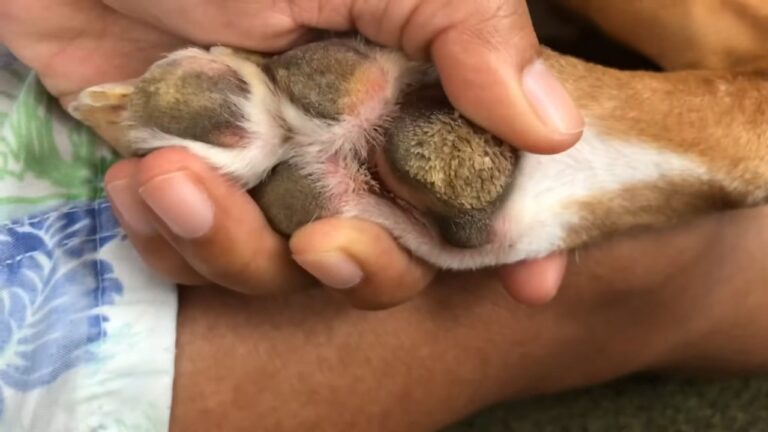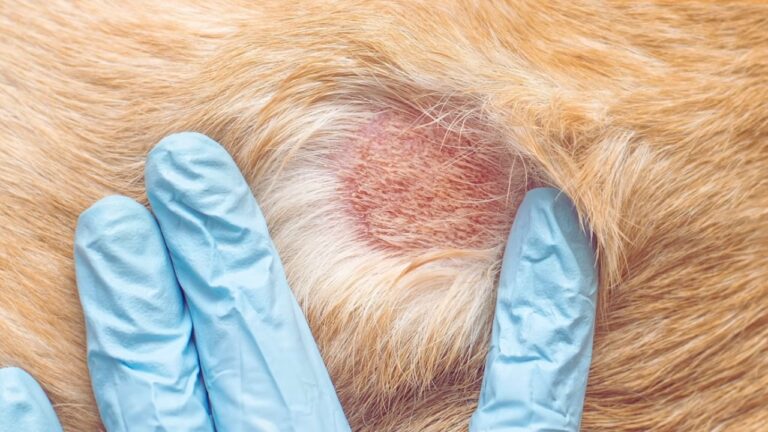Diatomaceous Earth presents various advantages for canine health, including its use as a natural deterrent against fleas and worms, as well as its potential to enhance digestion and boost immune function.
Now, let me show you what are some common traits. And answer the following question “is there a reason to worry about potential side-effects?”
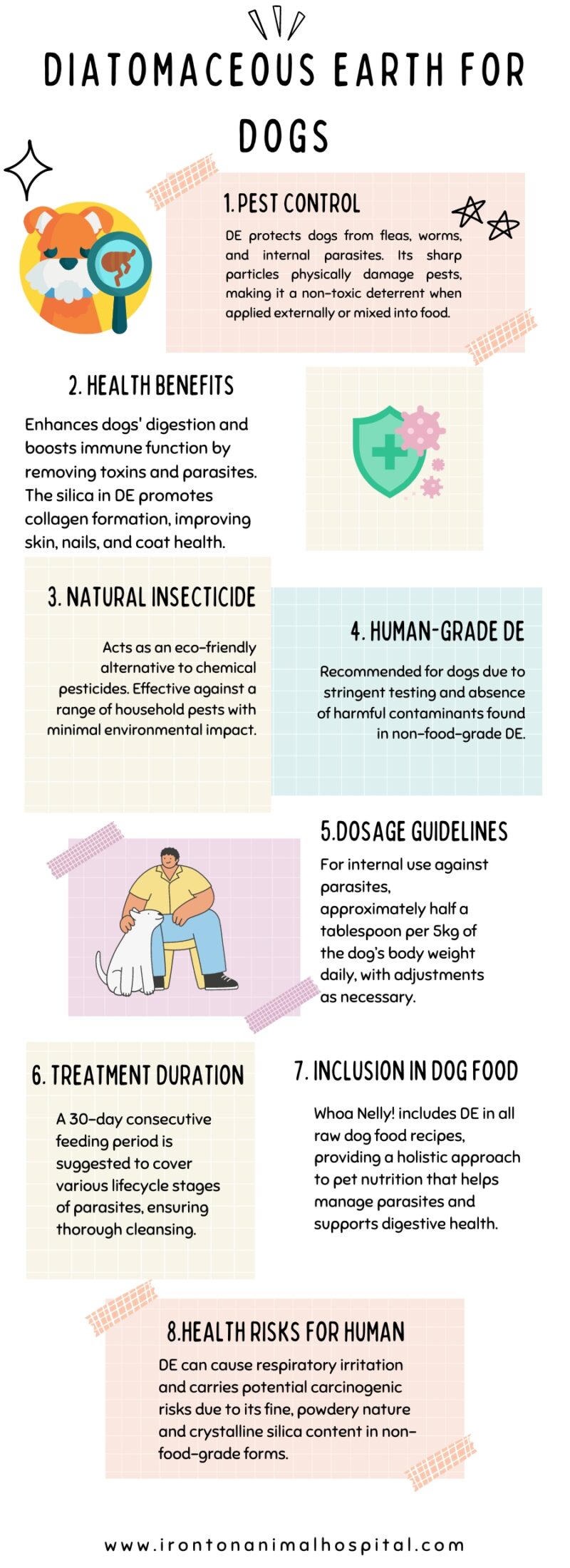
1. Protects Dogs from Fleas, Worms, and Internal Parasites

Diatomaceous Earth is renowned for its potential to shield puppies from well-known pests like fleas, worms, and other internal parasites.
This clearly taking place, fossilized substance is powerful because of its minuscule, sharp-edged debris, which can penetrate the exoskeletons of bugs and parasites without causing harm to the canine.
When used topically, DE serves as a physical deterrent against fleas, providing puppy proprietors a non-poisonous opportunity to save you infestations.
Also check out how to deal with Calcinosis Cutis.
DE works through a simple yet effective mechanism. Its finely ground, sharp-edged particles mechanically damage the protective outer layer of pests, causing them to dehydrate and perish. This makes it an efficient and safe option for pest control, especially around pets.
Many pet owners pick DE as it gives a comprehensive answer for pest control. It’s powerful not just against external nuisances like fleas however additionally helps in managing internal parasites while added to a puppy’s food regimen.
For foremost outcomes, adding meals-grade into your canine’s meals can useful resource in purging worms and other digestive intruders.
Here’s how to apply DE safely and effectively:
- External Application: Lightly sprinkle onto your dog’s fur to keep fleas at bay. Be cautious to avoid sensitive areas such as the eyes and nose.
- Internal Application: Mix a measured dose of it into your dog’s food to combat internal parasites.
2. Boosts Immunity and Digestion in Dogs

It’s believed that the silica content in Diatomaceous Earth notably complements a dog’s pores and skin, nails, and coat fitness by using contributing to collagen formation.
DE’s inherently abrasive quality aids in purifying the digestive system, casting off unwanted toxins and parasites, which in flip, enhances nutrient absorption and standard nicely-being.
It serves as an effective herbal detoxifier, purging impurities from the digestive tract and improving average intestine health.
The elimination of parasites and pollution by way of DE helps to growth the efficiency with which puppies absorb nutrients from their food.
A well-functioning digestive gadget is crucial for a dog’s immune health. Strong digestion fosters a higher immune response, allowing the canine’s frame to extra efficiently fend off infections and illnesses.
Many pet owners examine that including DE to their dog’s food plan effects in accelerated strength and less digestive problems.
3. Acts as a Natural Insecticide Against Pests

Its mechanical method of action—physically piercing and dehydrating insects—positions it as a secure and environmentally pleasant alternative to conventional chemical insecticides.
- Broad Spectrum: It proves its efficacy throughout a whole lot of family pests, providing a comprehensive solution for lots commonplace infestations.
- Environmentally Friendly: As a evidently occurring substance, it offers a minimal environmental effect as compared to artificial insecticides.
For quality consequences, DE must be strategically implemented around the home in areas susceptible to pest invasions. It’s essential to choose food-grade DE to ensure it’s safe for both pets and human beings.
- Targeted Areas: Distribute in regions like pet bedding, carpets, and along baseboards to fight fleas and different pests efficiently.
- Preventive Measures: Regular application of DE can help save you destiny infestations, preserving a pest-unfastened surroundings in your own home.
4. Human-Grade is Safe and Recommended for Dogs

This type of DE is subjected to stringent testing to verify it is free from dangerous contaminants, in contrast to the non-food-grade types generally utilized in industrial settings.
- Safety First: Only human-grade is suggested for use with pets, because it ensures each safety and effectiveness.
- Avoiding Toxins: Non-food-grade frequently incorporates crystalline silica, which is hazardous whilst ingested or inhaled, consisting of in pool filtration structures.
Pet proprietors ought to exercising caution in buying, ensuring they reap the perfect kind to keep away from ability health dangers. It’s essential that the packaging without a doubt labels the product as meals-grade, and shopping for from reliable providers is essential to ensure the purity and protection.
- Follow Dosage Recommendations: Complying with the cautioned dosages is key to maximizing the blessings at the same time as minimizing risks.
- Consult a Veterinarian: It’s essential to discuss the use with a veterinarian earlier than incorporating it into your canine’s eating regimen to affirm it is suitable for your pet’s precise health requirements.
5. A Specific Dosage is Suggested for Effective Use in Dogs

For internal use, particularly for controlling worms and other internal parasites, it is generally advised to administer 1/2 tablespoon of DE for every 5kg of the dog’s body weight on a daily basis. This guideline is intended as an initial reference, and adjustments may be necessary depending on the individual dog’s health, age, and specific conditions.
- Weight-Based Guidelines: Tailoring the dosage according to the dog’s weight is crucial for ensuring both its effectiveness and safety.
- Consistency is Key: Regular daily administration is vital for maintaining efficacy, particularly in controlling parasites.
6. Requires a 30-Day Consecutive Feeding Period to be Effective
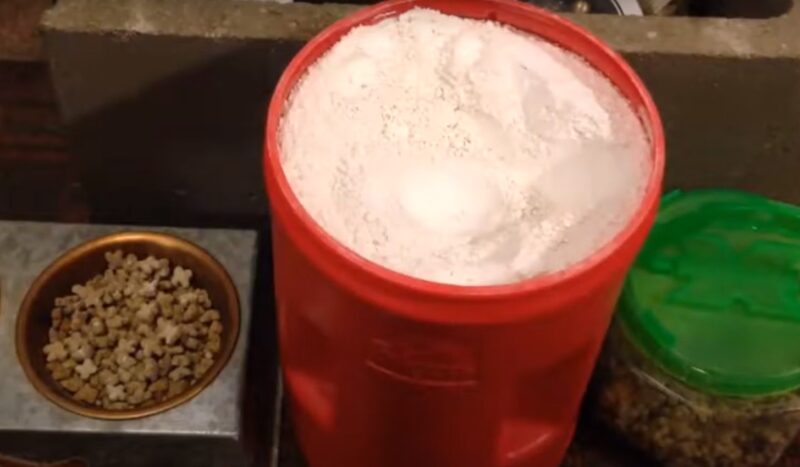
This specific duration is recommended because it allows it to effectively combat parasites across various stages of their lifecycle, ensuring a comprehensive cleansing of the dog’s digestive system.
- Lifecycle Coverage: Spanning a treatment over 30 days is critical as it ensures that it engages parasites at different phases of their growth and development.
- Building Up Effectiveness: The gradual accumulation of DE in the system improves its capability to adhere to and remove parasites.
7. Whoa Nelly! Includes in All Raw Dog Food Recipes
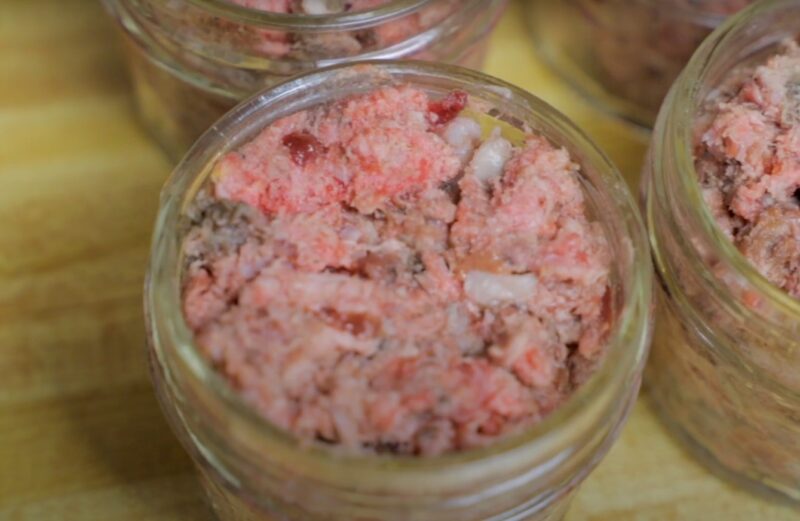
Whoa Nelly! has taken a formidable and revolutionary step via integrating Diatomaceous Earth into each of its raw canine meals recipes, reflecting a deep commitment to natural factor use for boosting the fitness and nicely-being of puppies.
By adding it to their products, Whoa Nelly! Goals to offer a complete technique to pet vitamins that addresses commonplace worries like parasites and digestion as part of the daily feeding routine.
The inclusion of DE in dog food brings severa blessings. It acts as a natural method for controlling parasites, assisting to beat back infestations of worms and different inner parasites thru normal intake.
It helps digestive fitness through promoting nutrient absorption and making sure normal bowel actions, way to its natural residences.
8. May Pose Respiratory Hazards and Potentially Carcinogenic Effects on Humans

DE’s fine, powdery texture permits debris to effortlessly become airborne during dealing with, that could pose sizable inhalation dangers.
- Respiratory Irritation: Breathing in can worsen the breathing tract, causing discomfort and doubtlessly main to more excessive respiration issues.
- Long-Term Exposure Risks: Continuous exposure, specifically the crystalline silica determined in non-meals-grade, is linked to a heightened risk of developing silicosis, a serious lung disease, and may additionally carry other carcinogenic effects.
These health risks highlight the critical need for cautious and informed handling of. Using protective measures when dealing with DE, especially in substantial amounts or over prolonged periods, is crucial to safeguard health.
Summary
Exploring natural remedies and supplements such as Diatomaceous Earth unveils a unique avenue laden with potential benefits, drawing from both traditional and holistic approaches.
The journey through the uses of DE is enriched by a variety of opinions and personal experiences, continuously evolving as more people discover its applications in pet care, pest control, and personal health.

